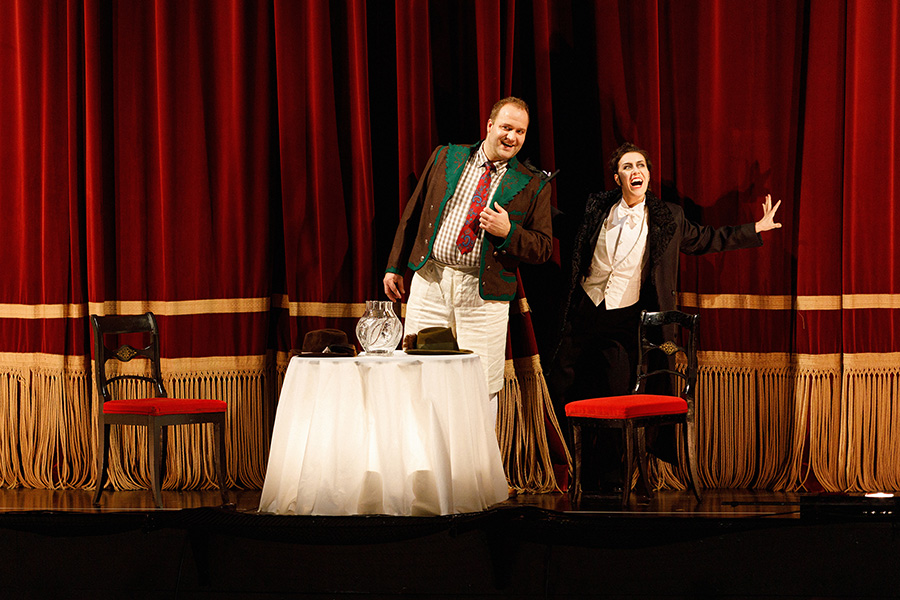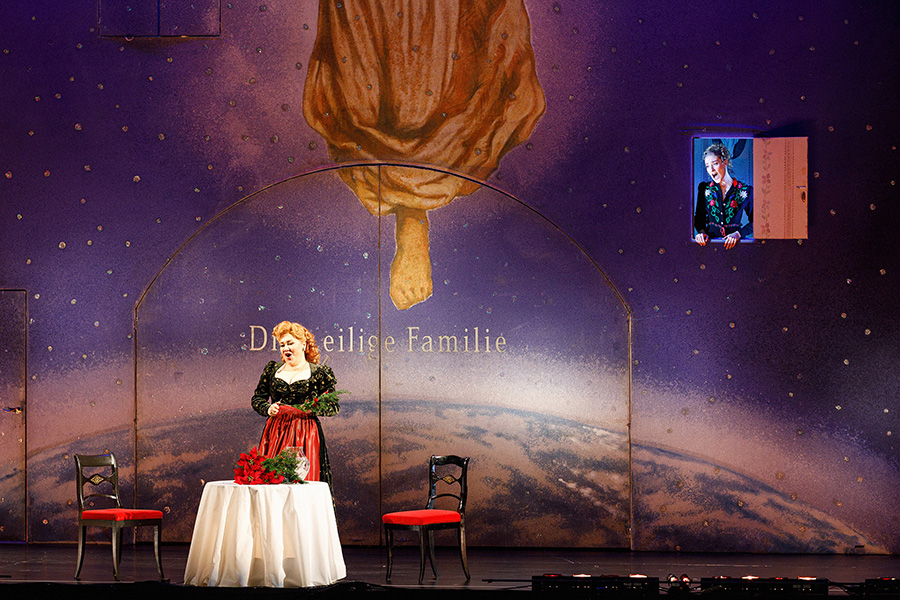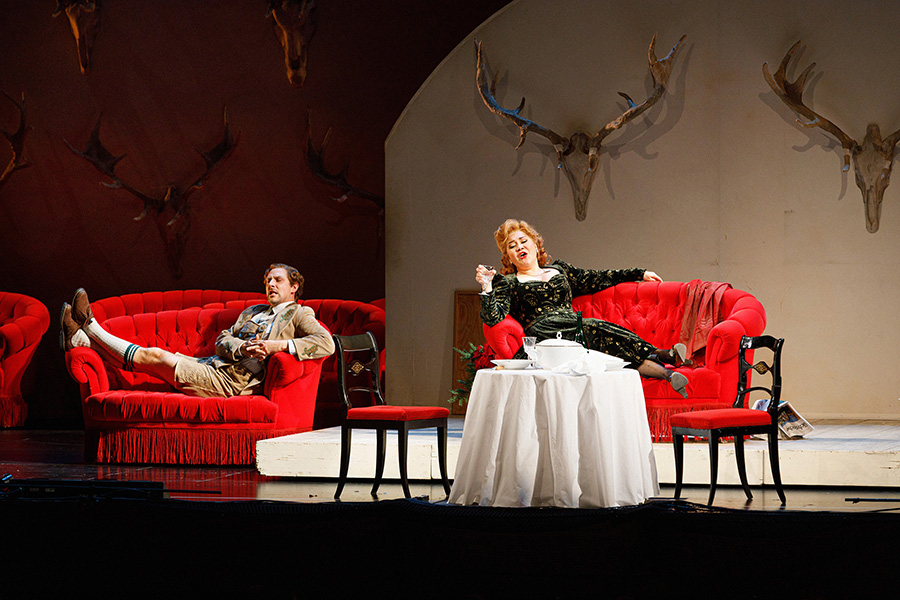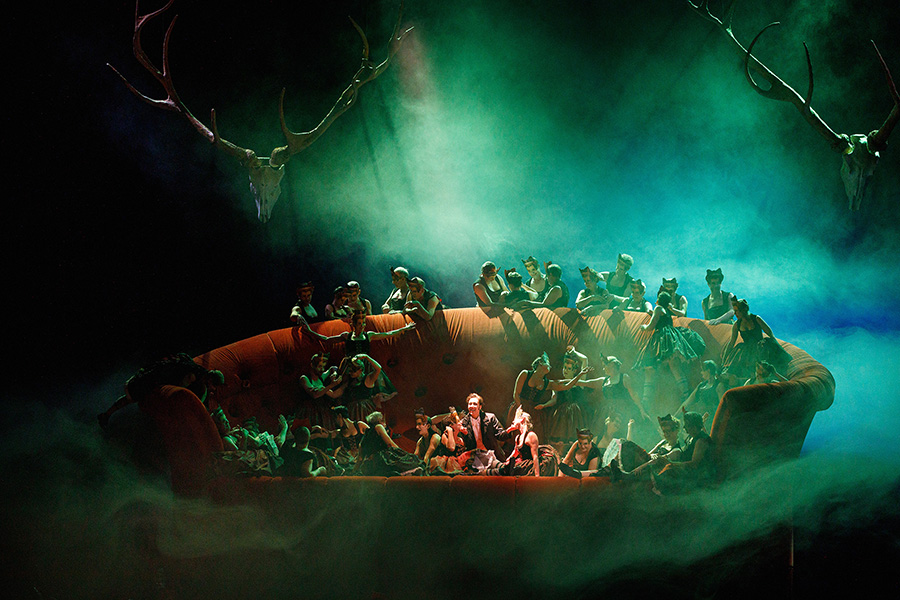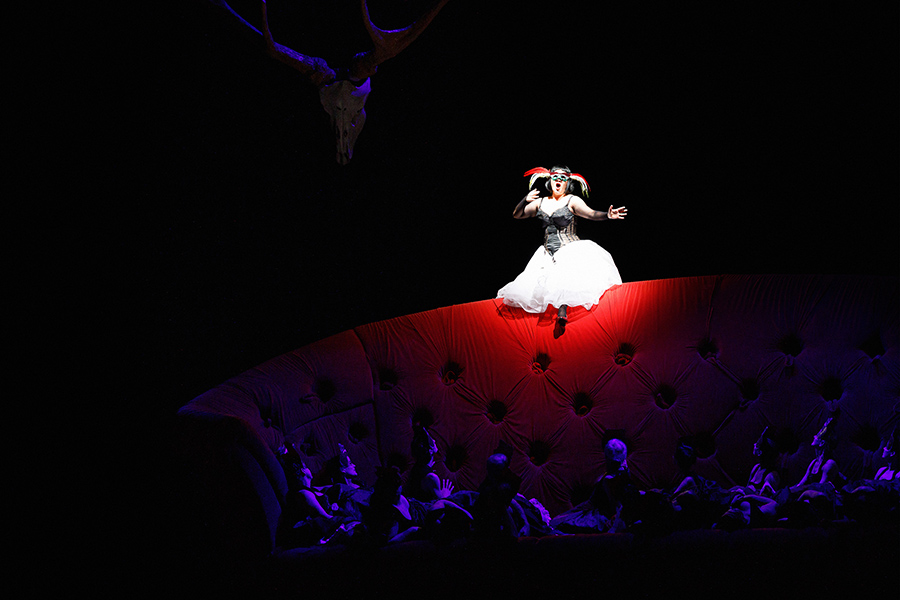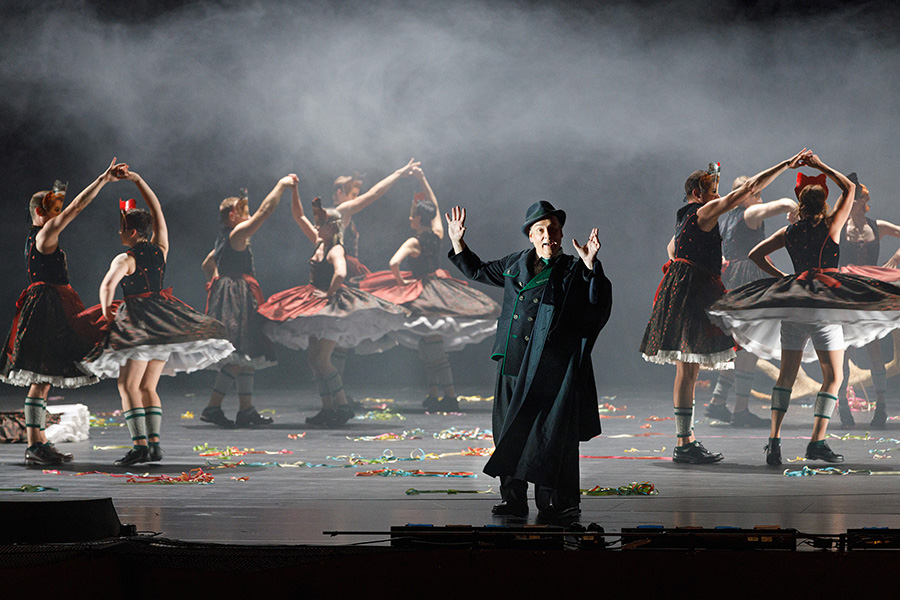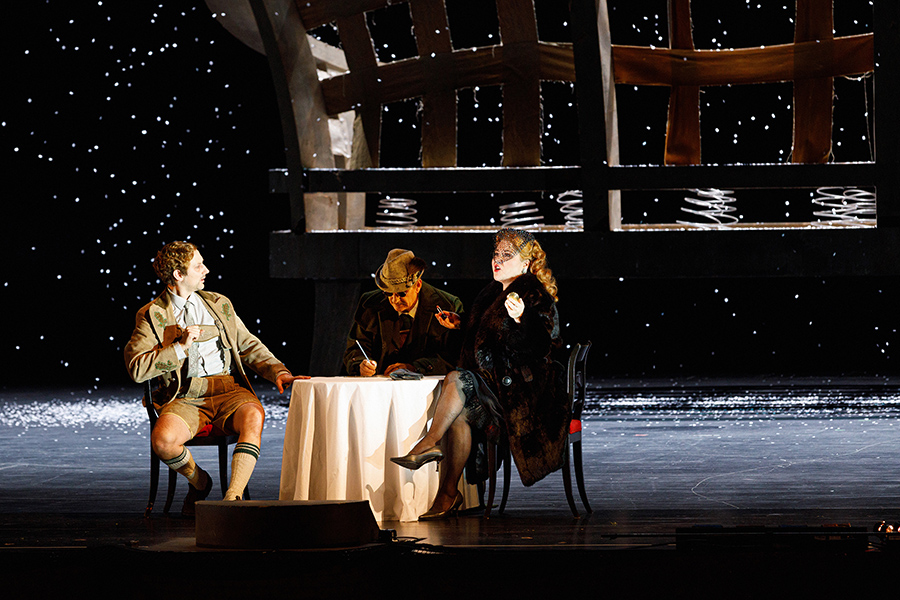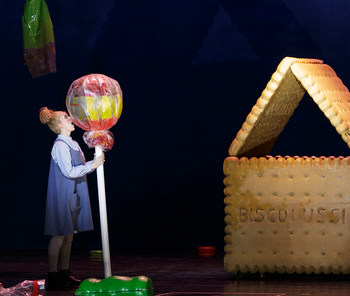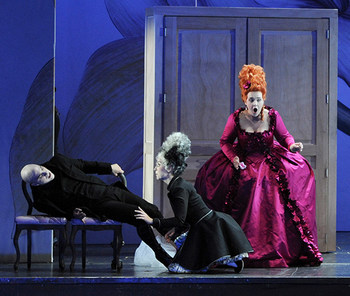Johann Strauss
Premiere 18. December 2003
Performed in German with German and English surtitles
Piece-Info
Johann Strauss’s »Die Fledermaus« from 1874 is a masterpiece of Viennese operetta: In order to take revenge on his friend Eisenstein, Dr. Falke (alias Die Fledermaus) stages a game of mistaken identities at Prince Orlofsky’s ball, where the guests include a Marquis and a Chevalier, a Hungarian countess and budding artists. However, nobody is who they claim to be. The masquerade and trickery end with the entire group of partygoers in prison. When the masks finally fall and extramarital shenanigans come to light, Falke’s revenge is complete. This production by Günter Krämer has been delighting Semperoper audiences since 2003 with classic numbers such as the Watch Duet, the Czárdás or Adele’s »Mein Herr Marquis« as well as the witty dialogue, updated with some amusing contemporary references. With diamond-sharp irony amidst the champagne glasses, »Die Fledermaus« is a great evening’s entertainment… and not just at the New Year!
Please note that there are seats with restricted sight in the first rows of the parquet as well as in the third and fourth balcony.
Weinberg, near Vienna
Act 1
The maid Adele has received an invitation to Prince Orlofsky’s ball from her sister Ida (No. 1). She would like to accept the invitation and tries in vain to ask her mistress Rosalinde von Eisenstein for permission to go (No. 1a).
Alfred, tenor and Rosalinde’s former lover, succeeds in blackmailing her into a rendezvous. And so she now gives Adele the evening off.
Gabriel von Eisenstein, condemnned to go to prison for having insulted a tax-collector, returns from his trial with his lawyer Dr. Blind, blaming him for the longer sentence he has received (No. 2).
Dr. Falke now enters and persuades Eisenstein to accompany him secretly to the ball being given by the Russian Prince Orlofsky and amuse himself before he goes to prison. — And this is where Dr. Falke’s plan of revenge on Eisenstein starts to unfold. Eisenstein had left him in a park three years ago after a masked ball, drunk and dressed as a bat, so that he was made a laughing stock the next morning when he returned home (No. 3).
When they say goodbye, Eisenstein, Rosalinde and Adele affect sadness for none of them recounts what they really plan (No. 4).
Alfred appears for the agreed tête-à-tête. Frank, the prison governor, enters and arrests the tenor, truly believing that he is Gabriel von Eisenstein who has to be arrested (No. 5).
Act 2
The masked ball at Orlofsky’s (No. 6/7). Gabriel von Eisenstein is introduced to society under the assumed name Marquis Renard, and thinks he recognises one of the masked ladies to be his maid Adele. She denies it (No. 8).
Eisenstein meets Chevalier Chagrin who is actually the prison governor Frank; both outdo each other as French impostors.
A masked Hungarian countess draws everybody’s attention to herself with a csardas (No. 10). Eisenstein flirts outrageously with her. His well-tested trick of making conquests with the help of a lady’s watch fails this time (No. 9). His wife is concealed behind the mask of the Hungarian countess, and she steals the watch as corpus delicti.
Falke and Orlofsky make all the guests at the ball fraternise with each other (No. 11).
The clock strikes six and Eisenstein and Frank have to flee the party.
Act 3
At the prison, Frosch, the court usher, is trying to keep law and order. Prison governor Frank arrives for work still under the influence of the ball (No. 13).
Adele and her sister Ida have followed him. They want to persuade him to finance Adele‘s artistic training. Uninhibited, she presents her artistic talents (No. 14).
Gabriel von Eisenstein is then announced. He is astonished to meet the »Chevalier« here. He too learns that he cannot be taken into custody because there is already a »von Eisenstein« in the cell.
Lawyer Dr. Blind — whom Eisenstein supposedly asked to come — enters. Eisenstein suspects Rosalinde of adultery and dresses as Blind to interrogate his Rosalinde and Alfred. Full of jealous anger, he reveals himself to them (No. 15).
Dr. Falke now arrives and calls all the guests from the ball to enter. They tell Eisenstein that they were all party to the »bat’s revenge«.
The champagne song becomes a cynical justification of Falke’s passion for infidelities (No. 16).
Gallery
Die Fledermaus
